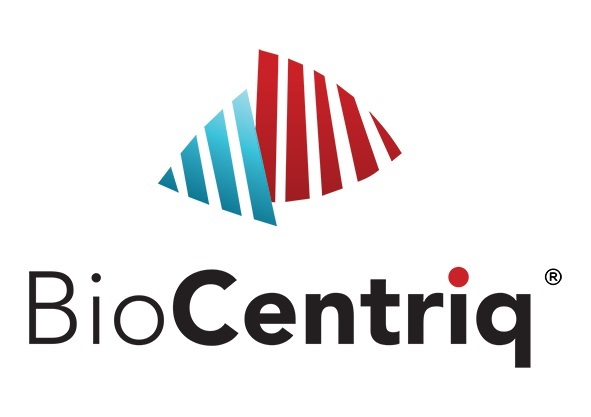NEW YORK, Oct. 15, 2024 -- Report on how AI is driving market transformation- The global automotive silicones market size is estimated to grow by USD 1.1 billion from 2024-2028, according to Technavio. The market is estimated to grow at a CAGR of over 6.43% during the forecast period. Growing demand for fuel-efficient and low-emission vehicles is driving market growth, with a trend towards increasing demand for silicone adhesive films for car customization. However, fluctuations in raw material prices poses a challenge. Key market players include BASF SE, CHT Germany GmbH, CRI SIL Silicone Technologies LLC, CSL Silicones Inc., Dow Inc., Elkem ASA, Evonik Industries AG, H.B. Fuller Co., Henkel AG and Co. KGaA, International Silicone Technologies, Kaneka Corp., Momentive Performance Materials Inc., Primasil Silicones Ltd., Rogers Corp., Shin Etsu Chemical Co. Ltd., Silicone Engineering Ltd., Siltech Corp., United Silicones Ltd., and Wacker Chemie AG.
Key insights into market evolution with AI-powered analysis. Explore trends, segmentation, and growth drivers- View the snapshot of this report
Automotive Silicones Market Scope | |
Report Coverage | Details |
Base year | 2023 |
Historic period | 2018 - 2022 |
Forecast period | 2024-2028 |
Growth momentum & CAGR | Accelerate at a CAGR of 6.43% |
Market growth 2024-2028 | USD 1134.1 million |
Market structure | Fragmented |
YoY growth 2022-2023 (%) | 5.9 |
Regional analysis | APAC, Europe, North America, South America, and Middle East and Africa |
Performing market contribution | APAC at 53% |
Key countries | China, US, and Japan |
Key companies profiled | BASF SE, CHT Germany GmbH, CRI SIL Silicone Technologies LLC, CSL Silicones Inc., Dow Inc., Elkem ASA, Evonik Industries AG, H.B. Fuller Co., Henkel AG and Co. KGaA, International Silicone Technologies, Kaneka Corp., Momentive Performance Materials Inc., Primasil Silicones Ltd., Rogers Corp., Shin Etsu Chemical Co. Ltd., Silicone Engineering Ltd., Siltech Corp., United Silicones Ltd., and Wacker Chemie AG |
Market Driver
Automotive silicones are essential materials for the adhesion of films and wrappings on vehicles. Their excellent bonding properties ensure films are securely attached to the surface. Silicones are versatile, capable of removing tough adhesives and are used in self-repairing films, which are in high demand. These materials can be used for creating full or partial car coverings, stretching up to 40% beyond their original size, and molding to fit curves without bubbles or wrinkles. This customization feature can significantly boost the global automotive silicones market growth during the forecast period.
The Automotive Silicones Market is experiencing significant growth due to increasing trends in lubricants, thermoplastics, electric vehicles, and hybrid vehicles. These trends are driven by the need for reduced CO2 emissions and improved fuel efficiency. Silicones play a crucial role in electric mobility, including battery systems, charging infrastructure, and thermal management. In the electrical segment, silicones are used for multilayered steel gaskets, electronic components, and electrical insulation with high dielectric strength. Automotive production and vehicle production are also major markets for silicones, with applications including airbags, adhesives, sealants, rubber fabric coatings, and automotive components like airbag covers, headlamp seals, power transmission parts, spark plug boots, and high tension cables. Silicone manufacturers provide specialized grades for various applications, ensuring vehicle reliability and consumer acceptability. Environmental regulations and emission standards continue to shape the market, driving demand for silicones in thermal management, sensors, and autonomous vehicles. The aftermarket and replacement parts sectors also benefit from the durability and versatility of silicones. Overall, the automotive silicones market is a dynamic and essential industry that continues to evolve with the needs of the automotive industry.
Request Sample of our comprehensive report now to stay ahead in the AI-driven market evolution!
Market Challenges
- • The automotive silicones market relies heavily on the oil and gas industry as silicon metal, a key raw material, is derived from crude oil. Price fluctuations in crude oil significantly impact the cost of raw materials for silicones production. In April 2020, the benchmark price for US crude oil became negative due to the global economic contraction and oil market collapse caused by the COVID-19 pandemic. This volatility increases the challenge for automotive OEMs to manage silicones procurement based on demand, leading to potential inventory build-up and increased storage costs. Additionally, rising energy costs, transportation charges, and secondary material costs exacerbate the impact of raw material price fluctuations on the global automotive silicones market growth.
- • The Automotive Silicones Market faces several challenges in various applications such as Elastomers for hoses and nozzles, gaskets, and diaphragms in Engine drive systems and Electrical systems. Crude oil prices and environmental concerns are key challenges. Silicones in airbag fabric coatings, thermal interface materials, and lithium-ion batteries require high temperatures and UV resistance, chemical exposure, and water repellency. Lightweight automobiles demand silicones with high mechanical properties, durability, and temperature resistance. Silanes, siliconates, and silicon emulsions are essential for gloss, detergent resistance, and electrical resistivity in auto paint additives, infotainment systems, and incar electronic displays. Challenges include meeting lightweight material requirements, vibration suspension, and shock absorption. Additionally, silicones are used in damper oil, ignition sets, windshield lining, airbag cushion coatings, radiator seals, cables, exhaust hangers, hoses, headlamps, shock absorbers, and various other automotive components.
Discover how AI is revolutionizing market trends- Get your access now!
Segment Overview
This automotive silicones market report extensively covers market segmentation by
- Application
- 1.1 Interior and exterior
- 1.2 Engine and drivetrain
- 1.3 Electrical systems
- 1.4 Suspension systems
- 1.5 Others
- Geography
- 2.1 APAC
- 2.2 Europe
- 2.3 North America
- 2.4 South America
- 2.5 Middle East and Africa
1.1 Interior and exterior- The Automotive Silicones Market is experiencing steady growth due to increasing demand for fuel-efficient vehicles and advanced automotive technologies. Silicones offer excellent heat resistance, durability, and resistance to chemicals, making them ideal for various automotive applications such as engine gaskets, sealants, and hoses. Major automakers and suppliers continue to invest in research and development to expand the use of silicones in automotive manufacturing. The market is expected to reach significant value by 2025.
Download a Sample of our comprehensive report today to discover how AI-driven innovations are reshaping competitive dynamics
Research Analysis
The Automotive Silicones Market encompasses a range of silicone-based products used in various automotive applications. These include ignition sets, windshield linings, airbag cushion coatings, radiator seals, cables, exhaust hangers, hoses, headlamps, shock absorbers, and more. These silicone products offer high strength and temperature resistance, making them ideal for use in vehicles. The market is driven by the increasing production of vehicles and stringent environmental regulations and emission standards. The shift towards electric mobility, battery systems, and charging infrastructure also presents significant opportunities. Thermal management, aftermarket, and replacement parts are other key areas of growth. Silicones offer thermal stability, chemical reactivity, and elastomeric properties, making them essential components in electrical systems, engine drive systems, and various sealing applications. Crude oil prices and environmental concerns, as well as plastic consumption restrictions, are some of the challenges facing the market. Airbag fabric coatings and diaphragms are other emerging applications for automotive silicones.
Market Research Overview
The Automotive Silicones Market encompasses a wide range of silicone-based products used in various automotive applications. These include ignition sets, windshield linings, airbag cushion coatings, radiator seals, cables, exhaust hangers, hoses, headlamps, shock absorbers, and more. Silicones offer high strength, temperature resistance, durability, and lightweight properties, making them ideal for use in automotive components. In the electrical segment, silicones are used for insulation, lubrication, and sealing in electrical systems and engine drive systems. They are also used in battery systems and charging infrastructure for thermal management. Silicones are used in the production of electric and hybrid vehicles, including in battery systems, thermal management, and electrical insulation. They offer excellent chemical resistance and thermal stability, making them suitable for use in high-temperature applications. Automotive silicones are also used in aftermarket applications for replacement parts and in the production of autonomous vehicles, sensors, and other advanced electronic components. Silicones offer excellent vibration suspension and shock absorption properties, making them ideal for use in suspension systems and other automotive components. The market for automotive silicones is driven by factors such as consumer acceptability, vehicle production, and environmental regulations, including emission standards and electric mobility. Silicones offer benefits such as improved fuel efficiency, reduced CO2 emissions, and reduced plastic consumption, making them an attractive alternative to traditional materials. Silicone manufacturers offer specialized silicone grades for various automotive applications, including airbag covers, headlamp seals, power transmission, spark plug boots, and high tension cables. These grades offer excellent mechanical properties, UV resistance, water repellency, and chemical exposure resistance. In summary, the Automotive Silicones Market offers a diverse range of silicone-based products for various automotive applications, including ignition sets, windshield linings, airbag cushion coatings, radiator seals, cables, exhaust hangers, hoses, headlamps, shock absorbers, and many others. Silicones offer benefits such as high strength, temperature resistance, durability, lightweight properties, and excellent chemical resistance, making them an ideal choice for the automotive industry. The market is driven by factors such as consumer acceptability, vehicle production, and environmental regulations, and offers opportunities for growth in the production of electric and autonomous vehicles.
Table of Contents:
1 Executive Summary
2 Market Landscape
3 Market Sizing
4 Historic Market Size
5 Five Forces Analysis
6 Market Segmentation
- Application
- Interior And Exterior
- Engine And Drivetrain
- Electrical Systems
- Suspension Systems
- Others
- Geography
- APAC
- Europe
- North America
- South America
- Middle East And Africa
7 Customer Landscape
8 Geographic Landscape
9 Drivers, Challenges, and Trends
10 Company Landscape
11 Company Analysis
12 Appendix
About Technavio
Technavio is a leading global technology research and advisory company. Their research and analysis focuses on emerging market trends and provides actionable insights to help businesses identify market opportunities and develop effective strategies to optimize their market positions.
With over 500 specialized analysts, Technavio's report library consists of more than 17,000 reports and counting, covering 800 technologies, spanning across 50 countries. Their client base consists of enterprises of all sizes, including more than 100 Fortune 500 companies. This growing client base relies on Technavio's comprehensive coverage, extensive research, and actionable market insights to identify opportunities in existing and potential markets and assess their competitive positions within changing market scenarios.
Contacts
Technavio Research
Jesse Maida
Media & Marketing Executive
US: +1 844 364 1100
UK: +44 203 893 3200
Email: media@technavio.com
Website: www.technavio.com/
This News is brought to you by Qube Mark, your trusted source for the latest updates and insights in marketing technology. Stay tuned for more groundbreaking innovations in the world of technology.








